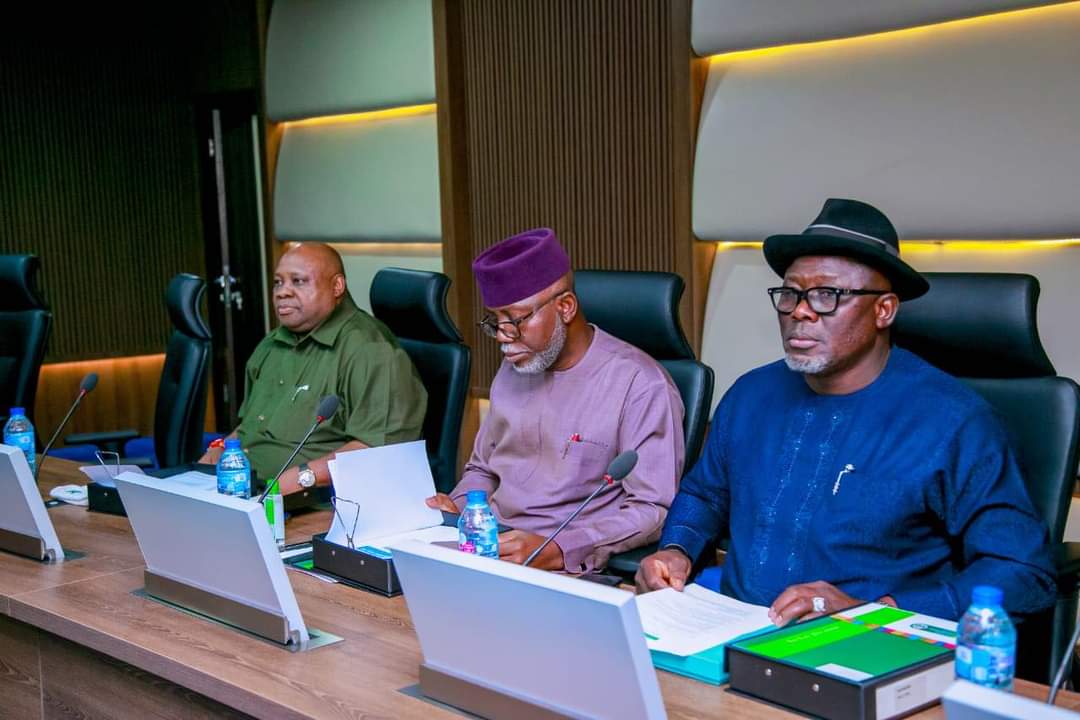Chairman of the Nigerian Governors Forum, Governor AbdulRahman AbdulRasaq Wednesday in Abuja stressed the need for deeper collaborations between the United Nations and the state Governments in order to achieve human capital development, revenue generation, and general economic growth.
The Kwara State Governor stated this during the meeting of the forum in Abuja when they played host to the United Nations Under-Secretary General Hajia Amina Mohammed and Pakistani female education advocate and 2014 Nobel Prize winner Malala Yousafzai.
While harping on the need for synergy between both parties, Gov AbdulRahman also emphasised that each of the development agenda has far-reaching implications for good governance, national development, and general wellbeing of the people, especially at subnational levels.
He explained the importance of deeper ties” The NGF values collaboration and this is why we will always harvest divergent views on key national issues and work in harmony with all the players, including development partners and multilateral organizations, to drive growth and pursue the interest of our people.
“We will strengthen our collaboration with all the stakeholders and development partners from the United Nations, National Emergency Management Agency, CBN, FIRS, Ministry of Finance, and many other key state actors.
“I thank my esteemed colleagues for gracing the meeting. I also appreciate all our guests for honouring our invitations, and their willingness to partner with the NGF on critical issues of development.
Earlier Malala Yousafzai, a Pakistani female education activist, who visited the Presidential Villa, Abuja, held a meeting with the Vice President Kashim Shettima in which she discussed girl-child education.
Malala was the 2014 Nobel Peace Prize winner at 17 and the world’s youngest Nobel Prize laureate. She is also the UN Messenger of Peace.
The education activist, accompanied by UN Deputy Secretary-General, Amina Mohammed, told State House correspondents that visiting Nigeria was part of activities to mark her 26th birthday celebration.
“We know that there are more than 120 million girls who do not have access to education right now, and just as people spoke out about my education, I want them to think about the education of other girls as well.
“ In Nigeria, I am here because girls’ education is important here; it will determine the future of Nigeria.
“ So, I am here because I want to bring attention to those issues; I am here to speak as well and share my thoughts with the communalities, and also lucky that I was able to meet girls in Abuja.’’
“I would ask here in Nigeria that all governments of states; all party members make the commitment to ensure that every child in Nigeria has access to a complete education, which includes senior secondary education as well.
“That every child has access to free and quality education, and the second I ask is that we make full financial commitment to ensure that no child is left behind in this country.’’
Malala said she had been to Nigeria three times and expressed optimism that the girl-child had bright prospects.
She lauded the commitment of the government and other stakeholders to improving girl-child education.”
On her part, Mrs Mohammed said that Malala’s visit was in advancement her advocacy for girl-child education.
She pointed out that by the high number of out-of-school children in Nigeria, Malala should be an inspiration for relevant authorities to address the challenge.
“Ten years ago, Malala made her speech at the UN; she is the UN Peace Messenger; this time around, you decided on her 10th anniversary she wanted to make the advocacy for education here in this country.
“We have a large number of out-of-school children; we know the quality of education in the country; this is an advocacy to an administration that is coming in; that believes in education is an important timing.
